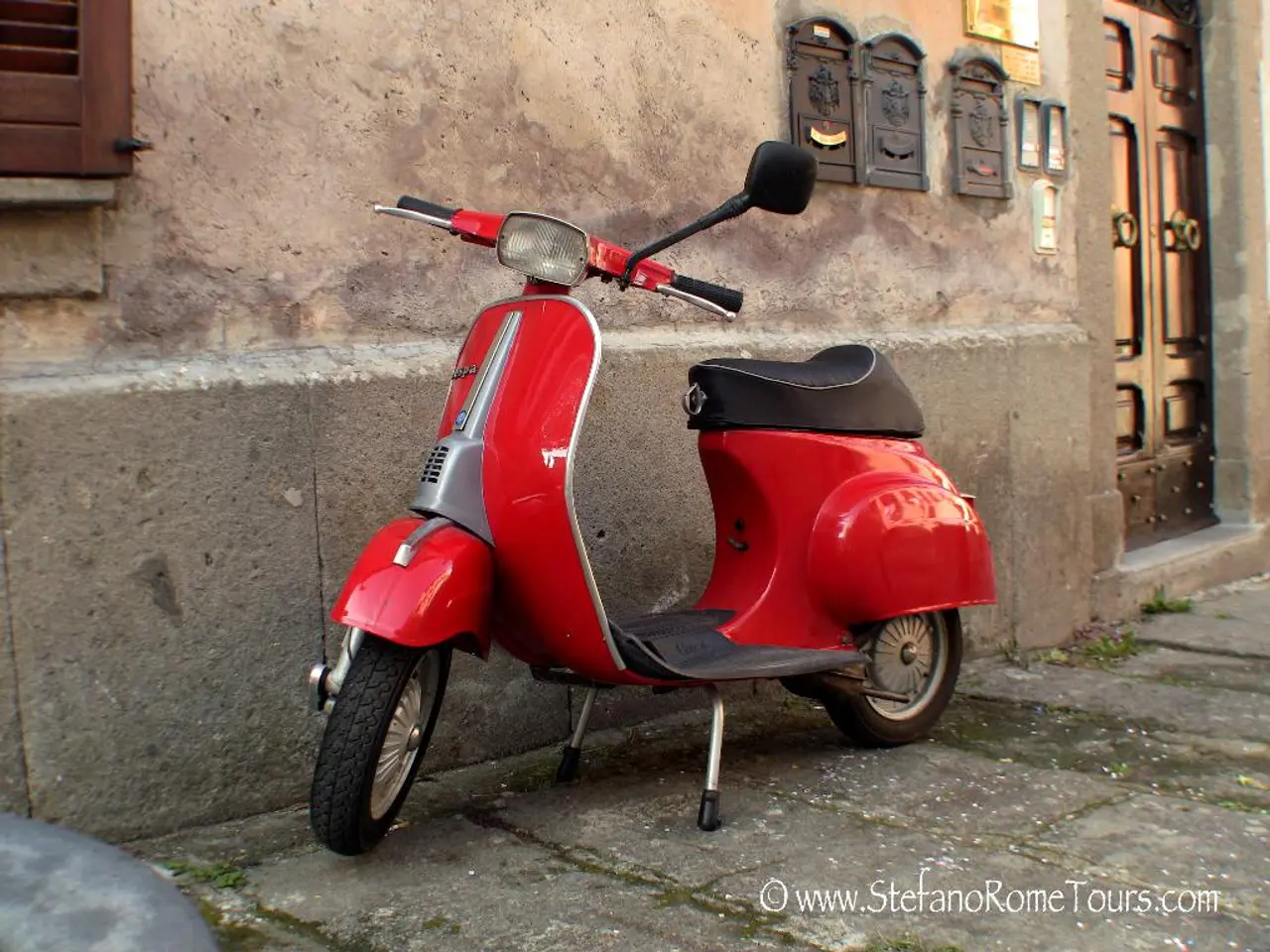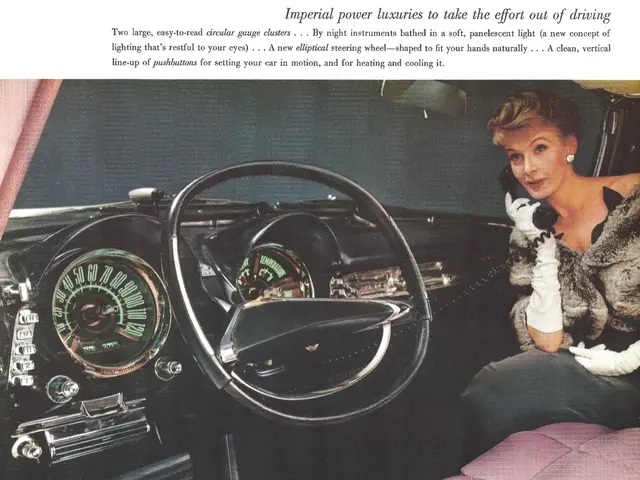Utility electric vehicles are the focus for Motovolt, as they announce the launch of the M7, URBN, and e-cycles for the mass market.
Motovolt Expands Operations and Introduces New Products
Motovolt, the Indian electric two-wheeler manufacturer, has announced plans to establish a second factory in Tuzla, with the aim of increasing its annual production to 100,000 units by FY26. This expansion is part of the company's strategy to address the growing demand for affordable and sustainable transportation solutions in India.
The company's flagship product, the URBN, is an electric bike that does not require a license to ride. Positioned as an affordable upgrade for those moving up from conventional cycles but unable to stretch to a full scooter, the URBN is priced between ₹25,000-30,000.
Motovolt is also working on a high-speed variant of the URBN, keeping the price point around ₹60,000 to remain accessible to the mass market. The urban-focused URBN model will soon have a range of 100 km to 125-130 km, making it an attractive option for both B2B and B2C users.
In addition to the URBN, Motovolt is developing the M7, a multi-utility scooter designed for durability and capable of carrying a 200 kg load. The M7 offers up to 166 km of range and is a key part of Motovolt's strategy to cater to the needs of goods carriers and those seeking an affordable daily commute solution.
Motovolt is also investing in in-house powertrain technology, developing locally motor controllers, vehicle control units, and battery management systems. The company's commitment to indigenizing critical components is a testament to its long-term vision for the Indian market.
German expertise via eRockit has been integrated into the powertrain and frame design of Motovolt's scooters, ensuring high-quality performance and safety.
Motovolt's strategy also includes the development of battery swapping networks, with the aim of providing them universally to customers in the long term. The company believes that this will be particularly beneficial for gig workers in India's booming quick-commerce economy.
The company plans to expand from around 100 retail touchpoints to 200 outlets across Tier-1 and Tier-2 cities by March 2026. Motovolt is also considering the establishment of a second facility in South or North India to further increase production capacity.
A larger funding round is expected before the year ends, with ₹200 crore earmarked for the new plant, R&D, and marketing. Motovolt's ambition is to indigenize critical components, scale production, and offer warranties up to 60,000 km for B2B customers.
India sells 15 to 20 million two-wheelers a year, and Motovolt aims to address the needs of this vast market. The company's emphasis on multi-utility scooters, urban machines, and e-cycles connects both B2B and B2C users, making it a key player in the Indian electric two-wheeler market.
According to Motovolt's CEO, India's e-commerce rider base could grow from 3 million today to 20 million in five years. With its focus on affordable, high-quality, and sustainable transportation solutions, Motovolt is well-positioned to meet this growing demand.
Read also:
- Understanding Hemorrhagic Gastroenteritis: Key Facts
- Stopping Osteoporosis Treatment: Timeline Considerations
- Trump's Policies: Tariffs, AI, Surveillance, and Possible Martial Law
- Expanded Community Health Involvement by CK Birla Hospitals, Jaipur, Maintained Through Consistent Outreach Programs Across Rajasthan







